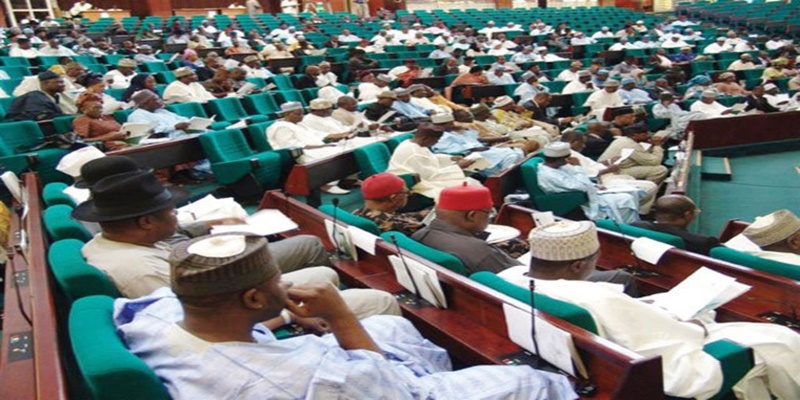
The House of Representatives has revealed that the Finance Bill will be laid on the floor of the House on Wednesday for consideration.
It also said that the bill would determine the federal government’s ability to fund the 2020 budget.
Speaking on Monday at the public hearing of the Nigeria Tax and Fiscal Law amendment Bill (the Finance Bill), 2019, the Speaker, Femi Gbajabiamila, said that the bill is an important piece of legislation, deserving of thorough consideration and reasoned debate by the parliament of the people, acting in the best interests of the people.
Gbajabiamila, who was represented by the Deputy Majority Leader, Peter Akpatason, said they have a responsibility as legislators to meticulously review and examine every aspect of the Bill to ensure that they produce a legislative document that is clear in its objectives, thoughtful in the mandates it imposes and reflective of the best aspirations of all the citizens.
He added that the public hearing moves the House closer to the laudable objective by providing an opportunity for citizens and legislators to jointly consider the contents of the Bill.
According to the Speaker, “The Tax and Fiscal Law (Amendment) Bill which we have gathered here to consider and to contribute to, will determine amongst other things, our ability as a nation to fund the 2020 budget, meet the obligations of government and implement policies to build infrastructure, tackle insecurity, grow the economy, and provide jobs that pay a living wage and lift families out of poverty.”
Gbajabiamila said it was expected that over the course of the public hearing, citizens would advance ideas and make recommendations that would improve the quality of the legislation and ensure the varied interests and considerations of all Nigerians are taken into consideration before final enactment into law of this essential legislation.
Earlier, the Chairman, House Committee on Finance, Hon. James Faleke, said the highlights of the Bill among others included excess dividend tax to apply only to untaxed distributions other than the profits specially exempted from tax and franked investment income; small businesses with turnover less than N25 million to be exempted from Companies Income Tax (CIT).
He added that lower CIT rate of 20% to apply to medium-sized companies with turnover between N25 million and N100 million.
“We work over it today and tomorrow and it would be laid on the floor of the House on Wednesday for consideration. Without this bill, 2020 budget is going nowhere,” Faleke said.
The Minister of Finance, Zainab Ahmed, commended the House for the expeditious process and the professional manner in which the bill has been handled.
The Bill seeks to amend the provision of the Companies Income Tax Act to, amongst other things, curb Base Erosion Profit Shifting (BEPS) as proposed by the Organization for Economic Corporation and Development (OECD) and thereby broadening the triggers for domestic taxation of income and by non-resident companies in Nigeria through dependent agents and via online market platforms.
Ahmed explained that in line with global best practice, the bill proposes to improve the efficiency of the Nigerian VAT system taking into consideration recommendations from various stakeholder groups.
She stressed that in addition to simplifying the VAT landscape, the Bill also seeks to expand VAT coverage by addressing some critical issues, such as taxation of the digital economy VAT registration thresholds and intangibles.
In his submission, the Chairman, Oil Producers Trade Section (OPTS) of the Lagos Chamber of Commerce and Industry, Mr. Paul McGrath, identified some key areas of concern which he said has the potential to further erode Nigeria’s competitiveness.
He said Sections 5 and 26 introduce a 7.5-10 per cent withholding tax on dividends paid out of petroleum profits, stressing that international oil companies operating in Nigeria are subsidiaries of foreign companies, to which they pay dividends out of the profits made from operations in Nigeria.
McGrath noted that while OPTS recognised the government’s need to fund the budget, however, the short-term increase in revenue from all these provisions puts at risk Nigeria’s ability to sustain its current production through new investments, adding that without new projects, Nigeria’s production would be subject to a 15% annual natural decline.
He said that additional taxes, such as those proposed in the Bill, would further increase OPTS costs, tax burden and would also erode Nigeria’s competitiveness in the global oil and gas industry.
Also, Mr. Taiwo Oyelade of PricewaterhouseCoopers (PwC) observed that Section 1 of the bill which talks about security lending was not covered, adding that there was a loophole which may be exploited to avoid payment of income or capital gains tax on the margin or profit made by a borrower and lender in a security lending transaction.
On her part, President, Chartered Institute of Taxation of Nigeria, Dame Simplice, described the proposed Bill as a move in the right direction since it would give legal backing to reforms aimed at improving the ease of doing business in the country.
She warned that increasing the VAT rate might not address budget deficit if government expenditure are not under control, adding that an increase in VAT rate should have corresponding increase in government accountability and service to the citizens in order to achieve the desired goal.






